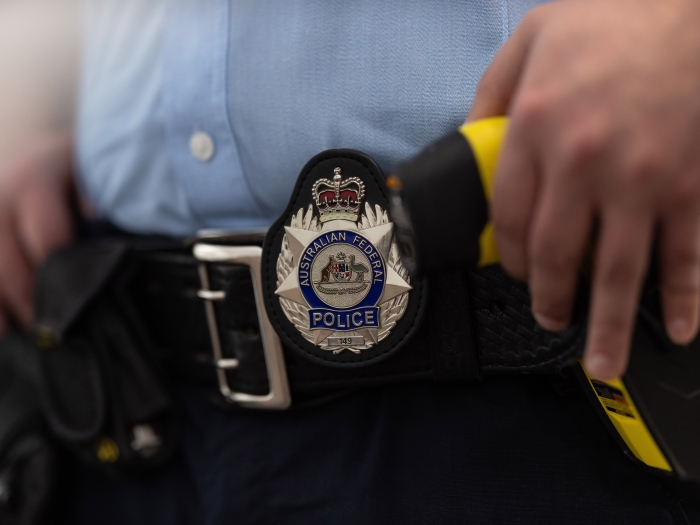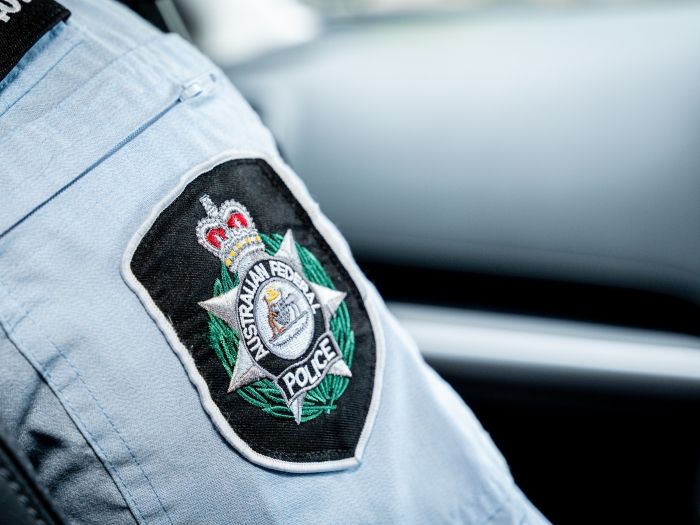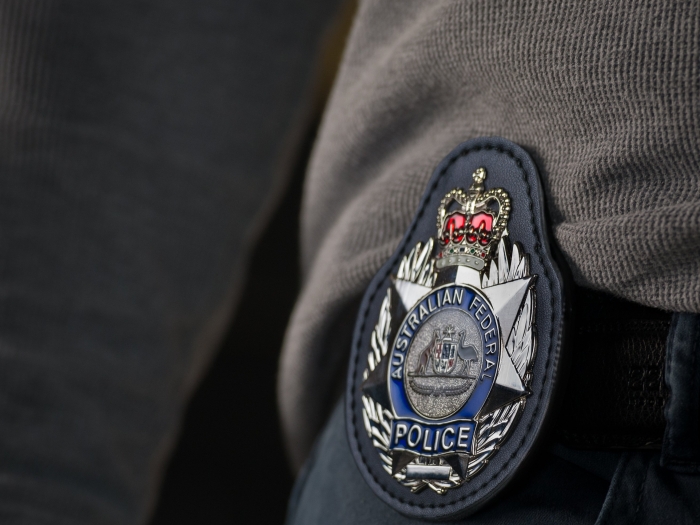UN’s highest-ranking police official visits Australia to celebrate world-first peacekeeping training for the Pacific
Editor’s note: Images, TV grabs and vision available via Hightail.
The United Nations’ (UN) highest-ranking police official has visited Australia to mark the conclusion of the world’s first UN Peacekeeping Training course tailored specifically for the Pacific region.
Police Adviser Faisal Shahkar – who oversees the UN’s police peacekeeping operations globally – met with the 100 recruits enrolled in the five-week program at the AFP’s Pacific Policing Development and Coordination Hub in Pinkenba, Brisbane.
With the UN already fielding requests from other countries to replicate the bespoke training, Mr Shahkar welcomed the recruits and their home countries as ‘partners in peace’.
“Our officers make a real difference in the lives of people in some of the most distressing and difficult situations in post-conflict countries, helping to lay the foundations of what we call sustainable peace,” Mr Shahkar said.
“As these brilliant officers from the Pacific look to enter the realm of international policing, where the UN plays such a leading role, I look forward to seeing their journey through the years and opportunities ahead.
“This is just the beginning.”
The training program, developed by the AFP in consultation with the UN, stretched from practical focuses such as community policing, driving and road safety to classroom-based topics including child protection, and preventing sexual exploitation and abuse.
It marked a number of milestones, chiefly the realisation of long-held Pacific ambitions to contribute more actively to international peacekeeping efforts, supported by the AFP.
Reflecting on his own time as a UN police peacekeeper having served in Timor-Leste, AFP Commissioner Reece Kershaw APM delivered an address at the closing ceremony.
“This inaugural course stands as a proud demonstration of how international cooperation, including Australia’s support for regional aspirations, can deliver a lasting global impact,” Commissioner Kershaw said.
“I am genuinely proud to support this initiative and work alongside my fellow police chiefs to strengthen the region’s contribution to global peace, stability and security.”
With participants from the AFP, Samoa, Kiribati, Fiji, Timor-Leste, Solomon Islands, Vanuatu, Tonga, Tuvalu, Federated States of Micronesia and Nauru, the course also boasted a broadly geographic training faculty, including Türkiye, Jordan, Fiji, Uganda, Ghana, Italy, Nepal, Argentina and Australia, with contributions from the AFP, Fiji Police Force and Australian Defence Force.
Commissioner Kershaw said it had contributed meaningfully to diversity within UN peacekeeping capabilities.
“This training cohort will enhance UN geographic diversity by 10 per cent,” Commissioner Kershaw said. “And I’m also proud to note 45 per cent of participants are women, which is an important reflection of our commitment to inclusive representation.”
Guests at the closing ceremony for the peacekeeping course included UN Chief, Police Selection and Recruitment Ata Yenigun, High Commission representatives from the Solomon Islands, Tonga, Samoa and Nauru and recently appointed Tongan Police Commissioner Geoff Turner.
AFP Assistant Commissioner Pacific Command Nigel Ryan said the training built on collaborations such as the Pacific Policing Initiative (PPI), which was a Pacific-led and Australian-backed initiative to strengthen peace and security.
The PPI has already delivered a Regional Centre of Excellence in Port Moresby, Papua New Guinea, which will serve as a training and development hub, with specialised courses developed and led by Pacific police.
“The ethos of ‘by the Pacific, for the Pacific,’ is a really important part of our policing initiatives in the region,” Assistant Commissioner Ryan said. “This training is an extension of that policing.
“We’re proud to have been able to deliver on the UN peacekeeping ambitions of our Pacific and Timor-Leste partners and provide security as a Pacific family.”





